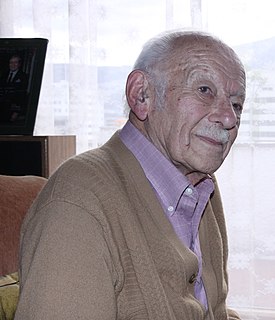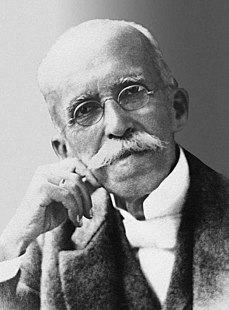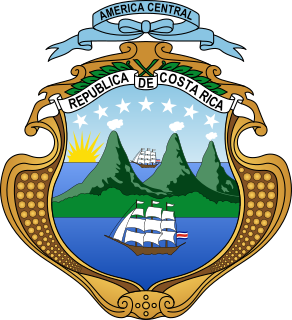The Autonomist Liberal Party, renamed usually semplified in Liberal Party in 1898, was one of major parties from 1910 until the Cuban Revolution the late 1950s, when it was exiled.

General elections were held in Ecuador on 17 May 1992, with a second round of the presidential elections on 5 July. The presidential elections resulted in a victory for Sixto Durán Ballén of the Republican Union Party–Conservative Party alliance, who received 57.3% of the vote in the run-off. The Social Christian Party emerged as the largest party in the House of Representatives, winning 21 of the 77 seats.

General elections were held in Brazil on 1 March 1894. The presidential election was won by Prudente de Morais of the Republican Party of São Paulo, who received 80.1% of the vote.

Presidential elections were held in Brazil on 1 March 1898. The result was a victory for Manuel Ferraz de Campos Sales of the Republican Party of São Paulo, who received 90.9% of the vote.

Presidential elections were held in Brazil on 1 March 1902. The result was a victory for Rodrigues Alves of the Republican Party of São Paulo, who received 91.7% of the vote.

Presidential elections were held in Brazil on 1 March 1906. The result was a victory for Afonso Pena of the Mineiro Republican Party, who received 97.9% of the vote.

Presidential elections were held in Brazil on 1 March 1910. The result was a victory for Hermes da Fonseca, who received 57.1% of the vote. Fonseca was supported by several of the most influential Republican parties, whilst his main opponent Rui Barbosa was supported by the Civilist Campaign, a movement opposed to da Fonseca. After the election da Fonseca was also supported by the Conservative Republican Party.

Presidential elections were held in Brazil on 1 March 1914. The result was a victory for Venceslau Brás of the Mineiro Republican Party, who received 91.6% of the vote.

Presidential elections were held in Brazil on 1 March 1922. The result was a victory for Artur Bernardes of the Mineiro Republican Party, who received 56.0% of the vote.

Presidential elections were held in Brazil on 1 March 1926. The result was a victory for Washington Luís of the Republican Party of São Paulo, who received 98.0% of the vote.

General elections were held in Brazil on 1 March 1930. In the presidential elections the result was a victory for Júlio Prestes of the Republican Party of São Paulo, who received 57.7% of the vote.

General elections were held in Turkey on 15 October 1961. The electoral system used was party-list proportional representation with the D'Hondt method in 67 electoral districts. In order to receive seats in a district, parties needed to win a Hare quota in that district. The result was a victory for the Republican People's Party, which won 173 of the 450 seats. Voter turnout was 81.4%.

General elections were held in Turkey on 21 July 1946, the first multi-party elections in the country's history. The multiple non-transferable vote electoral system was used. The result was a victory for the Republican People's Party, which won 395 of the 465 seats.

Parliamentary elections were held in Armenia on 5 July 1995, with a second round on 29 July. There were 150 constituency seats and 40 elected on a national basis using proportional representation. The result was a victory for the Republican Bloc, which won 88 of the 190 seats. Overall voter turnout was 54.3%.

General elections were held in Costa Rica on 7 December 1913, the first direct elections since 1844. They were also the first elections to have universal male suffrage, after economic and educational requirements were eliminated. Máximo Fernández Alvarado of the Republican Party won the presidential election, but both he and runner-up Carlos Durán Cartín later resigned and Alfredo González Flores was appointed president by Congress on 8 May 1914. The Republican Party also won the parliamentary election. Voter turnout was 78.0% in the presidential election and 78.6% in the parliamentary election.

General elections were held in Costa Rica on 12 February 1928. Cleto González Víquez of the National Union won the presidential election, whilst the party also won the parliamentary election, in which they received 53.3% of the vote. Voter turnout was 62.5% in the presidential election and 72.85% in the parliamentary election.

General elections were held in Costa Rica on 11 February 1940. Rafael Ángel Calderón Guardia of the Independent National Republican Party won the presidential election. Voter turnout was 80.8% in the presidential election and 65.6% in the parliamentary election.

General elections were held in Costa Rica on 26 July 1953. José Figueres Ferrer of the National Liberation Party won the presidential election, whilst his party also won the parliamentary election. Voter turnout was 67.2 percent in the presidential election and 67.5 percent in the parliamentary election.

General elections were held in Portugal on 28 April 1918, following a coup by Sidónio Pais in December 1917. The elections were boycotted by the Democratic Party, the Evolutionist Party and the Republican Union, who had won over 90% of the seats in the 1915 elections.
The Republican Movement was a political party in Switzerland between 1971 and 1989.















